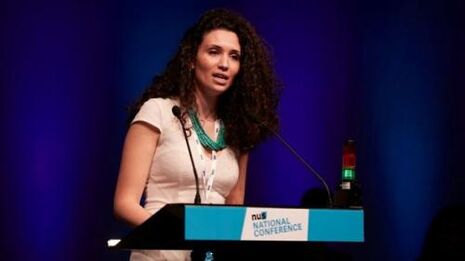CUSU Council postpones NUS affiliation vote amid fee increase
The debate has been postponed at least until after the NUS conference in late April

CUSU Council has voted almost unanimously to postpone a vote on the student union’s affiliation to the National Union of Students (NUS), following a year which saw a heated debate and tight referendum on the benefits of membership.
The postponement came as it was revealed last week that CUSU’s affiliation fee is set to jump more than twentyfold, from £250 to £5,765.
According to CUSU President Amatey Doku, the fee was decided through a combined assessment of the “block grant” CUSU receives from the university, and individual college affiliation fees. The fee for the following academic year, 2017-18, could be as high as £9,500.
Doku clarified that college affiliation fees have never before been included in Cambridge’s NUS affiliation fee and are not a fee affecting most other universities.
Doku argued that remaining affiliated with the NUS would avoid a “snap decision”, allowing CUSU time to negotiate and gain more clarity on the affiliation fee increase.
He proposed waiting to revisit and debate CUSU’s affiliation to the NUS until after the NUS Conference on 25th-27th April, at or before the setting of the CUSU budget for 2017-18 at the first meeting of CUSU Council in Easter term.
CUSU had been expecting to make a profit of £1,974 on its NUS membership for 2016-17; however, with the increase in affiliation fees, the students’ union now stands to make a loss of £3,541.
The bulk of income from CUSU’s affiliation to the NUS comes from commission from sales of NUS Extra cards. This amount, an expected total of £16,000, has been frozen while the affiliation fee remains in dispute.
CUSU held a referendum in May, in which Cambridge narrowly voted to remain a member of NUS, but Newcastle, Hull, Loughborough and Lincoln all voted to disaffiliate.
Following Cambridge’s remain vote, CUSU sent an open letter to NUS, calling on the organisation to “do more to protect the rightful place of Jewish students within the student movement.”
 Features / Should I stay or should I go? Cambridge students and alumni reflect on how their memories stay with them15 December 2025
Features / Should I stay or should I go? Cambridge students and alumni reflect on how their memories stay with them15 December 2025 News / Cambridge study finds students learn better with notes than AI13 December 2025
News / Cambridge study finds students learn better with notes than AI13 December 2025 News / Dons warn PM about Vet School closure16 December 2025
News / Dons warn PM about Vet School closure16 December 2025 Comment / The magic of an eight-week term15 December 2025
Comment / The magic of an eight-week term15 December 2025 News / News In Brief: Michaelmas marriages, monogamous mammals, and messaging manipulation15 December 2025
News / News In Brief: Michaelmas marriages, monogamous mammals, and messaging manipulation15 December 2025









